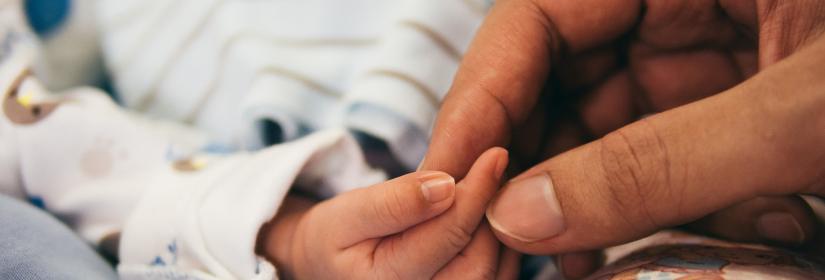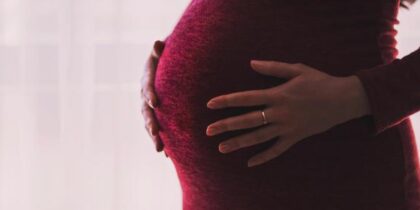When we talked about inviting people to share their stories we thought it was important to share some of our own. So here is my story about postnatal depression (PND) and my recovery from feeling lost and alone.
We never used the hammock.
I got pregnant in 2009 and the fanfare was extraordinary. Up until then I was known for being the antithesis of motherhood, I worked hard and played hard. We had the least child-friendly house with expensive antiques, art work everywhere and big chunky furniture perfect for little children to break or to break themselves with. Indeed, as I was doing the pregnancy test I was smoking a cigarette, so sure I was that it would be negative. When my very surprised husband announced our pregnancy I immediately put out the cigarette and expected all around me to treat me like a goddess – I was making a human for goodness sake!
My pregnancy was actual real life bliss; I was the happiest I had ever been. I had a few issues to think about but nothing major. I lapped up the attention, and would tell anyone who would listen about how I would spend the summer of 2010 lying with my baby reciting poetry to her in our hammock in the garden.
It turned out that there were some days I could barely speak a word at all. About a month before my daughter was born, I was overwhelmed by anxiety, with recurring dreams about losing my baby in childbirth. This was, whilst horrific, completely understandable as I had witnessed this happening to my mother when I was a child. My amazing midwife referred me to the perinatal mental health team very quickly. I saw someone from the team briefly and managed to contain my anxiety well enough to get through childbirth (the details of which would need a completely different sort of blog). Then the worst thing very nearly happened. My daughter became gravely ill at two days old and we were seconds away from losing her. She was saved and diagnosed with a life-threatening genetic condition called MCADD.
I look back now and it was clear that my husband and I immediately needed help. We were unprepared for this; our baby was at risk from this condition and we were terrified, terrified every minute of every day. I quickly became very isolated. I stopped going out, I stopped people apart from my parents coming to the house, I stopped smiling and I stopped being rational about anything.
After four months of trying to cope I realised I needed to speak to someone when I found myself sitting on my bedroom floor looking at my beautiful girl asleep in her cot and I thought to myself, ‘she would be better off without me’. It seemed completely rational until a few days later I said this out loud to my mum. She just said, ‘darling, I don’t think you are very well’. It was simple in the end: after months of terrible emotional pain, I just needed my mum to acknowledge that I was poorly, that I had lost myself completely in a tidal wave of anxiety and guilt, afraid that somehow I was hurting my baby by not being perfect, by having wonky genes and a broken spirit.
I phoned the perinatal team, my nurse came back and she kept coming back until I was well which took a whole year. I successfully went back to work after maternity leave and started to rebuild my identity and to love life again. I don’t think I’m the same person as I was before PND. I don’t know yet what the long-term effects are on my girl – those first few months were tough on her too. I know that whilst I got the direct help from the team, my husband didn’t; he needed help too and I’m not sure he got that. Most fathers don’t sadly.
I’ve had another child since and I didn’t get PND this time despite having lost my father by then. My nurse made sure she was on hand should I have needed her. This time I realised that being a mum was tricky, and I was kinder to myself and let people in. Knowing that how I had felt in 2010 was a normal response to my circumstances made all the difference; my nurse made me feel validated, listened to and, most of all, she made me feel less alone. 20% of mothers experience perinatal mental health problems. That’s two out of ten people – at least one person you might meet at baby yoga.
I didn’t lie in the hammock in the summer of 2013 either, but only because it couldn’t hold all three of us. Instead, we spent it sprawled on a blanket in the garden looking at the sky, taking each day as it came… I knew we would all be okay.
For more information on perinatal mental health problems, check out our research and the Maternal Mental Health Alliance. If you need support, our list of contacts may be able to help.



